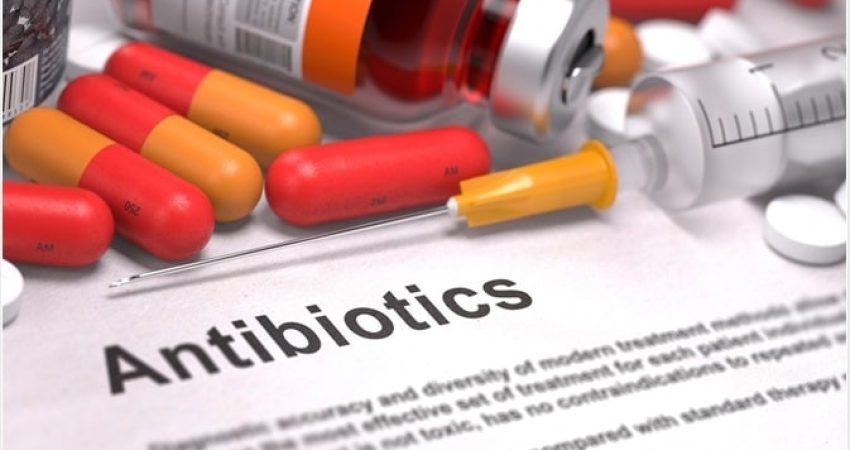By: Kwame Sarpong-Asiedu
Brene Brown, one of the leading researchers on vulnerability argues that “owning our story can be hard but not nearly as difficult as spending our lives running from it. Embracing our vulnerabilities is risky but not nearly as dangerous as giving up on love, belonging, joy and the experiences that make us the most vulnerable. Only when we are brave enough to explore the darkness will we discover the infinite power of our light.”
On a recent trip to Ghana, I was confronted with a perennial problem regarding the use of antibiotics. Various brands of antibiotics were easily available for purchase, even without a Doctor’s recommendation or prescription . Though this wasn’t a new development, global changes in the effectiveness of antibiotics over the years meant that we looked at the continued misuse that goes on in sub-Saharan Africa differently.
In March 2020 an article published in “Frontiers in Public Health” by Samuel Afari-Asiedu and colleagues on the “Inappropriate Antibiotic Use in Rural Central Ghana,” established that 86.6% of all antibiotics were used inappropriately. This finding wasn’t markedly different from another study conducted by Eric S. Donkor and colleagues who found out in October 2012 that “self-medication with antibiotics among tertiary level students in Ghana was around 70%”. For a class of medicines that are prescription-only, this finding was concerning. They further established that 49% of respondents had poor knowledge about the health implications of the irrational use of antibiotics.These figures are staggering and suggest that if anything antimicrobial misuse in Ghana is on the rise.
Several factors are known to drive the tendency for people to abuse antibiotics. These include poor healthcare access for the citizens, altered health-seeking behaviour as a result of the lack of access, high cost of health procurement, poor health professional to population ratios, poor prescribing habits, availability of spurious and substandard medicines, inappropriate use of antimicrobials as prophylactics in animal husbandry and a lack of enforced regulations etc.
The combined effect of these factors is the development of antimicrobial resistance. The World Health Organisation (WHO) indicates that “Antimicrobial Resistance (AMR) occurs when bacteria, viruses, fungi and parasites change over time and no longer respond to medicines making infections harder to treat and increasing the risk of disease spread, severe illness and death.” This ultimately has an impact on the cost of healthcare procurement and delivery.
Compounding the situation further is the dwindling stock of antimicrobials globally and the lack of research and development of new and effective medicine candidates. At the end of 2019 before the occurrence of SARS-COV-2, there were only 32 antibiotics in clinical development that addressed the WHO list of priority pathogens, of which only 6 of these were classified as innovative. With such a precarious situation, it is only prudent that the current stock of antimicrobials is judiciously protected.
However, using Ghana as a test it is clear that little emphasis is being placed on protecting these vital medicines. This view is buttressed by results from a nationwide study of eleven hospitals in Ghana which revealed high rates of over 70% resistance among pathogenic bacterial isolates observed for Ampicillin, Chloramphenicol, Cotrimoxazole, and Tetracycline. These are amongst medicines that have for decades been the mainstays of infectious disease management and are now obsolete in many of our health facilities thanks to AMR.
Meaning, our health system will have to find extra funds to invest in newer antibiotics at a time that our fiscal space is shrinking. More importantly, looking at the structure of funding of health based on the segmentation of our health expenditure per capita majority of the increased cost of healthcare will be burdened on citizens who procure health out of pocket (52% of the population). Furthermore, the National Health Insurance Scheme (NHIS) will have to spend more on infectious disease management than it may have budgeted for putting, a strain on their meagre resources.
It is clear therefore that we need to address this as a matter of urgency. In addressing this we would need a multifaceted approach that invests in research and development, engages in public health education and encourages the enforcement of regulations around the use of antibiotics.
Pharmaceutical research and development (R&D) has not been a strong part of our approach to healthcare improvement. Often, this has been attributed to a lack of money but with the cost of R&D dropping due to advances in Artificial Intelligence (AI) and machine learning, this position may become untenable.
In the past, many drug candidates have been developed for specific medical conditions with limited effectiveness but have later been found to employ themselves in other areas of healthcare effectively. One such group of medicines are the selective type 5 phosphodiesterase inhibitors now used mainly as agents to combat erectile dysfunction. The first medicine in this category was sildenafil (Viagra) which was originally developed as a potential treatment for angina with poor clinical results. The journey for Viagra could be described as accidental with reports of a side effect of penile erections during the angina clinical trials leading to trials as a candidate for ED which were more promising. This observational approach to drug discovery is time-consuming and expensive.
With the development of AI, Scientists from the Massachusetts Institute of Technology (MIT) using AI, have managed to screen millions of chemical compounds and discover a potentially powerful antibiotic Halicin. This quicker approach, an improvement on the observational studies as with Viagra may be an ideal option for researchers in countries like Ghana as it cuts down research costs by avoiding a lot of laboratory studies.
The low understanding of the impact of citizens actions on increased AMR can only be addressed through consistent education that is tailored to the literacy levels of different population segments. This activity would not be easy and cannot be undertaken on an ad-hoc basis but has to be well resourced, planned and sustained for at least 5-years if the desired impact is to be realised. Any such education will also require political will and the engagement of all health professional bodies.
In the end, regulators such as the Pharmacy Council and the Food and Drugs Authority would have to enforce the regulations around antimicrobials. To start with almost all of these medicines are prescription-only and should not ordinarily be supplied without a valid prescription issued by an appropriate clinician. Sadly, throughout my life, this provision of our laws has been flouted with impunity by all, including the health professionals who swear an oath to protect the health and wellbeing of society. Others in the agricultural sector use these as a means of increasing the productivity of their livestock in violation of the regulations around veterinary medicine, ignoring the risks their actions could be associated with. This situation is so entrenched that we struggle to see how education without punitive enforcement can result in a change.
We will end by reminding readers that we have no choice but to confront our vulnerabilities if we are going to get this right. The microbes developing AMR are more formidable agents than many of us give them credit for. Our only arsenal against them relies on the element of surprise and heavy pharmaceutical firepower all of which are thwarted when antimicrobials are used inappropriately. It is therefore imperative that collectively we address this issue lest it would become our Achilles heel at a time when our immune systems may be fledgling and our vulnerabilities are highest.

Kwame Sarpong Asiedu is Democracy and Development Fellow (Health) at Ghana Center For Democratic Development (CDD-Ghana).
















